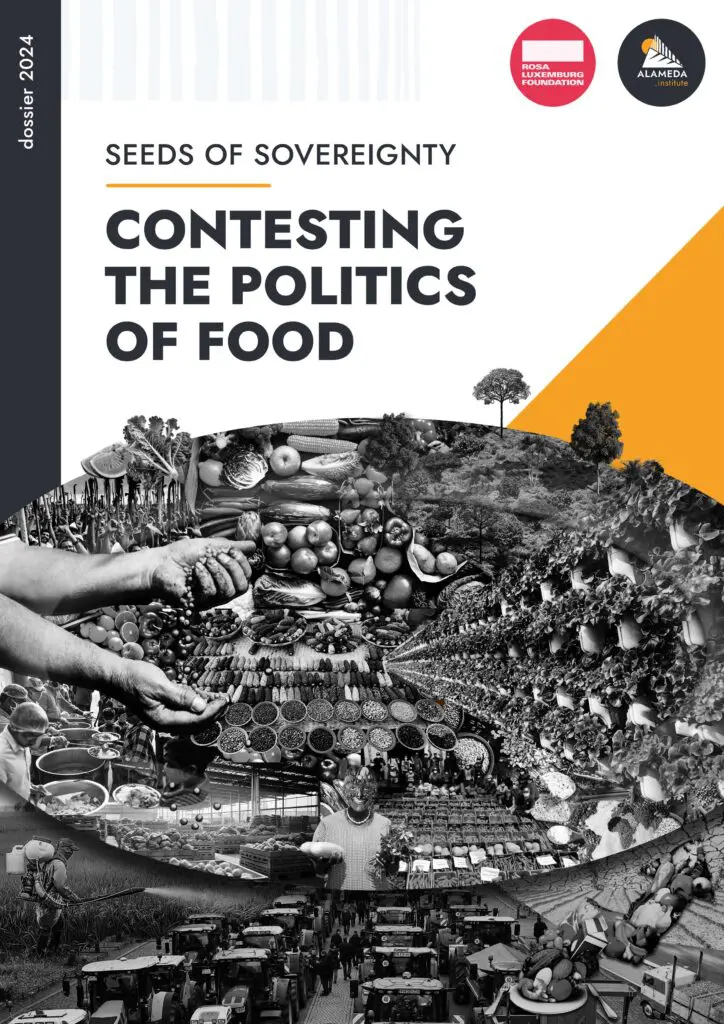Africa’s Agricultural Future Lies in Agroecology
A premise which has its roots in traditional knowledge and ecological principles, some people may find the term agroecology mysterious or esoteric. However, far from being an abstract concept, agroecology can be a lifeline for long-lasting food systems, providing a route that links the welfare of people with the health of the land. Agroecology is not just about farming and growing food; it means combining social justice, ecological science, and indigenous knowledge. Overall, it is a holistic system in which ecosystems and agriculture work in harmony to produce food that is both environmentally sustainable and safe for consumption. As an approach, agroecology prioritises not just yields of crops, but the health of ecosystems, the well-being of communities, and people`s sovereignty over their food systems.
For small-scale food producers, agroecology is a beacon of hope. It promises a way out of the vulnerability imposed by monocultures and the dependency on external inputs such as chemical fertilisers, hybrid seeds and pesticides. Agroecological systems are inherently diverse, which means they are more resilient to the pests and diseases which can decimate food systems at a local level. They are also resilient to the market shocks that can disrupt local economies and cause crises further up in the food system. They encourage farmers to cultivate a variety of crops, an approach which promotes nutritional diversity in diets, and a safety net in the face of adversity. Furthermore, these practices strengthen community bonds, as farmers often work together: sharing knowledge, seeds, and labour.
Food sovereignty is at the core of agroecology. This is because agroecology promotes the right to healthy and culturally appropriate food, which is produced through ecologically sound and sustainable systems.
Food sovereignty means communities having the power to shape the future of their own food systems, rather than being passive observers and recipients of global agricultural trends.
As examples of how agroecology can play out in practice, an agroecological farm in Kenya combines crop rotation, agroforestry, and natural pest control, relying on years of local expertise. In Uganda, community seed banks may help to preserve biodiversity by providing access to a variety of traditional crops that are robust to local climate problems. These viable examples can be found all over the African continent.
Technology and Agroecology
Technology can play a huge part in transforming Africa’s agricultural systems into agroecological ones. When considering technology, we must interrogate what we mean by technology, as well as who owns the technology, and the power relationships that lie behind said technologies.
Technology could revolutionise Africa’s agriculture if it is employed with the participation of farmers, and if it is used in a way that makes sense contextually.
It must be designed with small-scale food producers in mind, allowing for scalability and adaptability to local settings. Digital technologies, for example, can play a role in facilitating peer-to-peer exchanges via platforms and mediums like WhatsApp or Facebook. They can also be used in tracking or aggregating goods from multiple producers, or in connecting farmers with cost-effective logistics and transport options. In each of these applications though, it’s vital that the digital technologies operate in a regulatory environment where the data taken from farmers is not used for profit, and which enables farmers to decide with whom it is shared.
There is a risk that digitisation paves the way for big food and big tech to use their existing technological advantage to extend their control over African markets. Therefore, the challenge for governments and their public policies is to create the regulatory environment for digital technologies without it becoming a breeding ground for monopolies that crowd out small-scale food producers.
Labour and Agroecology
The labour involved in agroecological farming practices often leads to misconceptions of agroecology as a backward step to the labour-intensive practices of the past. This is a myopic view. In reality agroecology involves labour of a different kind — a kind that is intellectually engaging and physically rewarding. By its nature, it is a system of agriculture which involves managing polycultures, enhancing soil health, and maintaining ecological balance; all of which require knowledge and skill.
This labour should be valued and supported through educational programs that teach ecological literacy and practical skills in agroecology. In an ideal agroecology system, this education would begin at primary school level by introducing agroecology and agroecological concepts into the curriculum. Furthermore, there should also be agroecology training for government and civil society extension agents as well as the provision of supportive publications.
Energy Efficiency and Agroecology
The extent to which agroecology is energy efficient is a testament to the ingenuity of working with nature, not against it.
Agroecological practices often use renewable energy and minimise reliance on external inputs, which are energy-intensive to produce. Moreover, they take advantage of biological processes — such as the process by which legumes convert nitrogen into ammonia or natural pest control through predator-prey relationships — which reduces the need for chemical fertilisers and pesticides. This not only cuts energy consumption, but also enhances the resilience of farming systems to shocks such as drought or market volatility. Agroecological farmers can cope with crises and global volatility as they mostly rely on their own inputs, produce their own food, and are relatively immune to the whims of fuel prices.
Agroecology and Productivity
Is agroecology productive enough to feed a rapidly growing African population? To answer this question we must first consider what productivity means in conventional agriculture, which is one-dimensional and fixated on yield per hectare.Agroecology challenges this narrative, proposing a multidimensional view of productivity that includes soil health, water quality, biodiversity, and social equity.
In agroecology, productivity is determined by the variety of crops that are planted and harvested rather than by counting the output of a single crop. This vision questions the wisdom of pursuing high yields at the cost of long-term ecological health and social well-being. Instead, it promotes a well-rounded strategy that maintains productivity over time, understanding that true abundance comes from ecosystems operating in balance.
Agroecology and Social Movements
As the drive for conventional agriculture is accelerating, political movements, like the Alliance for Food Sovereignty in Africa (AFSA), are burgeoning across Africa. This reflects a collective awakening to the importance of healthy, sustainable, and equitable food systems. These movements are not merely about lobbying for policy changes, but also about grassroots empowerment, community engagement, and the democratisation of food systems. They call for a shift from top-down approaches to more participatory, inclusive governance structures that recognise the rights and knowledge of local communities.
The path to agroecology is not merely about changing farming techniques; it means overhauling worldviews. It requires a collective shift in how we value food, farmers, and the land itself.
According to the prevailing narrative, Africa cannot feed itself without the use of agrochemicals, high-breed seeds, and a shift in agriculture to market-led practices. To counter this, we must put forward a more robust vision which centres the realities of climate change, biodiversity loss, and escalating global conflicts. In this metric, it is impossible to focus only on one narrow definition of productivity. Instead, the need to produce more, healthy, culturally appropriate food, with the right to food at its core, becomes primary.
The international community has a role to play in all of this. Development assistance and agricultural investments must be aligned with agroecological principles. This means moving away from the promotion of high-input agricultural systems, and instead supporting the scaling-up of agroecological practices. It requires a change in funding priorities, from supporting large agribusiness to investing in small-scale food producers and local food systems.
In conclusion, agroecology is not a luxury but a necessity for the future of Africa, and indeed the world. It offers a sustainable pathway for the continent’s agriculture, ensuring food security, preserving biodiversity, and empowering communities. As the world grapples with the challenges of climate change and sustainability, Africa has the opportunity to lead by example.
Through its implementation, we can demonstrate that agroecology is not just feasible, but can actually be the foundation for a prosperous and sustainable future. We face a choice between perpetuating a system that degrades both the land and its people, or nurturing one that restores ecosystems and revitalises communities. The time to make the right choice is now.




